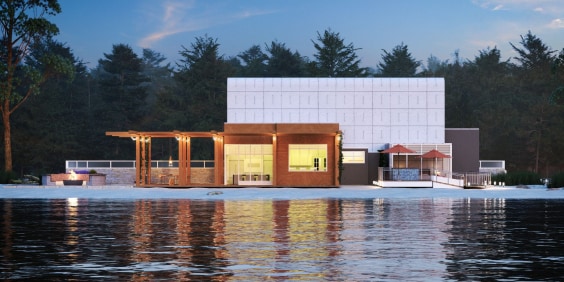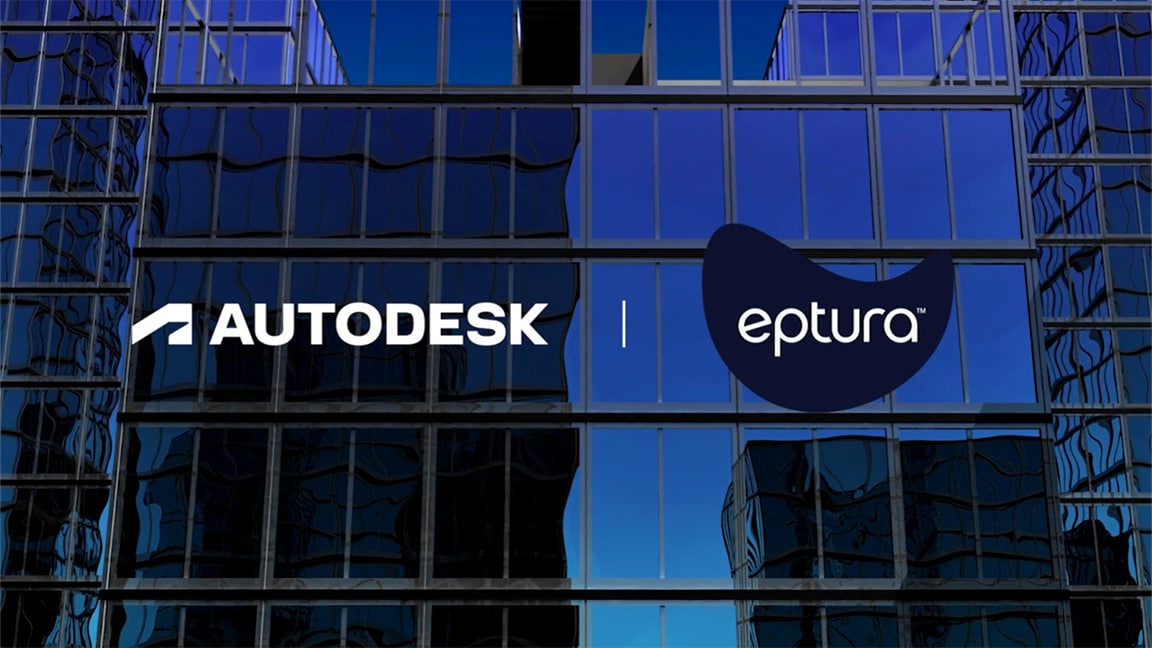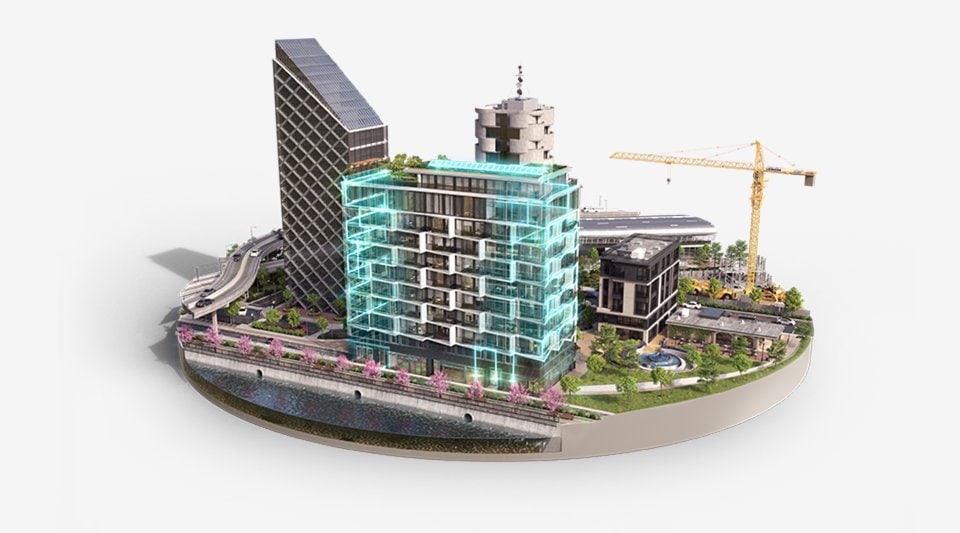& Construction

Integrated BIM tools, including Revit, AutoCAD and Civil 3D
& Manufacturing

Professional CAD/CAM tools built on Inventor and AutoCAD
Whatever type of facility you manage, see how CAD/BIM and workspace management processes can help operate your facilities more efficiently and cost-effectively.
Ensure your hospital, clinic, or other healthcare facility provides an exceptional environment for the care, safety, and security of your patients and staff.
Image courtesy of STV – Architectural Resources
Image courtesy of STV – Architectural Resources
Effectively execute your facility management strategies to establish greater security and safefty for staff and students, improve cost management, and ensure building structures and assets are maintained with sustainability in mind.
Better understand the impact of your facilities to your business mission and goals. More effectively address tenant concerns for health and safety, ensure more frictionless operations of critical systems, and better manage energy usage.
Optimize activities to maintain cleanliness and security of retail facilities. Reduce risks that can impact hours of operations. Make date driven decisions to maximize floor space and customer traffic patterns.
Autodesk and Eptura (formerly iOffice + SpaceIQ) have teamed up to combine critical design and engineering data with building operational and performance data and workflows. This makes it easier than ever to better manage costs, improve occupancy comfort, and reduce your carbon footprint.
2D and 3D CAD tools, with enhanced insights, AI-automations, and collaboration features. Subscription includes AutoCAD on desktop, web, mobile, and seven specialized toolsets.
Plan, design, construct, and manage buildings with powerful tools for Building Information Modeling.
See how a common data environment connects teams, mitigates risk, and saves building owners time and money across the entire asset lifecycle.
Learn how Autodesk and collaborative BIM tools improve visibility and streamline processes at every project phase – from planning, design and construction through to occupancy.
Digital Twins can help building owners and facility managers with their aggressive environmental goals by identifying areas of waste energy, how to improve them, and where they are occurring, while also providing operational data such as testing and balancing reports or operations and maintenance manuals to speed up the process of troubleshooting issues
Over 95% of data generated during design and construction is lost or underutilized. This data could be useful for building owners and operators for facility maintenance and management. And replicating these asset databases consumes unneeded resources. As building portfolios becomes more sophisticated, facility managers will need to rely on data more heavily. To address this growing concern, Autodesk and Eptura aim to deliver solutions for the entire lifecycle management of a building. Facility managers can use this data to make informed decisions about everything from maintenance and operations, enhanced cleaning and hygiene protocols, improved security, to space utilization and energy consumption.
Archibus is an IWMS (integrated workplace management system) software application from Eptuira that supports more holistic space planning and management, building operations and maintenance. Archibus helps enable more efficient and sustainable building and workplace management services. The Autodesk AEC-Collection, with Revit provides the tools AEC professionals need to develop architectural, structural, and MEP BIM design models of their projects. These models are then used in construction. Autodesk Tandem is a digital twin solution, designed to deliver smarter buildings and operational excellence.
The BIM model is the key output derived from the BIM process. This model contains rich and accurate design and documentation information on every feature of the built asset.
Incorporating BIM models into workplace management systems provide a single view of the built asset data and workplace operations information. This allows facility managers to take a more data driven approach to operations and maintenance. They can better manage costs by minimizing on demand maintenance and unplanned downtime, improved occupancy comfort and safety through workplace utilization and services, and a reduced carbon footprint with effective monitoring of power usage.






